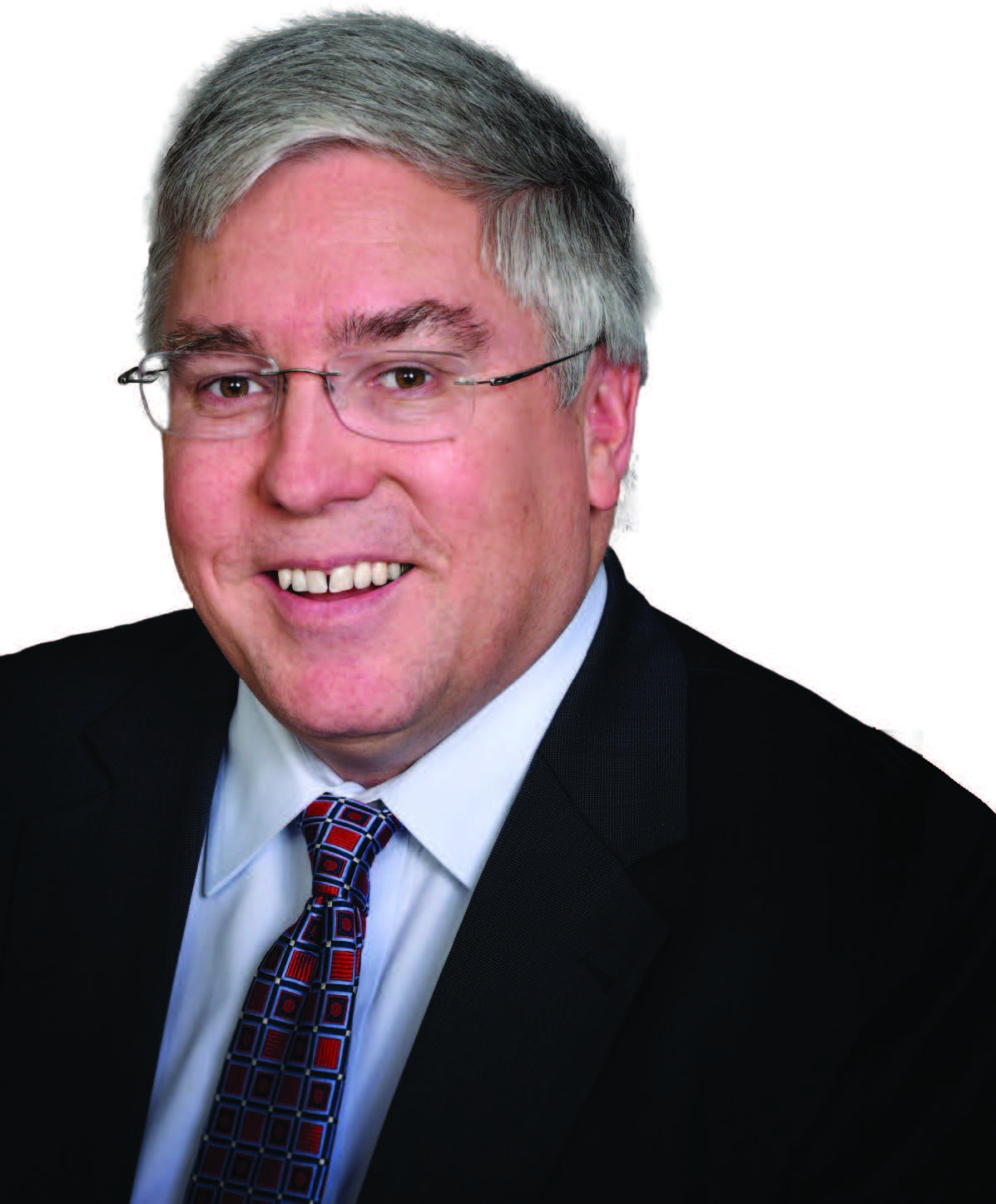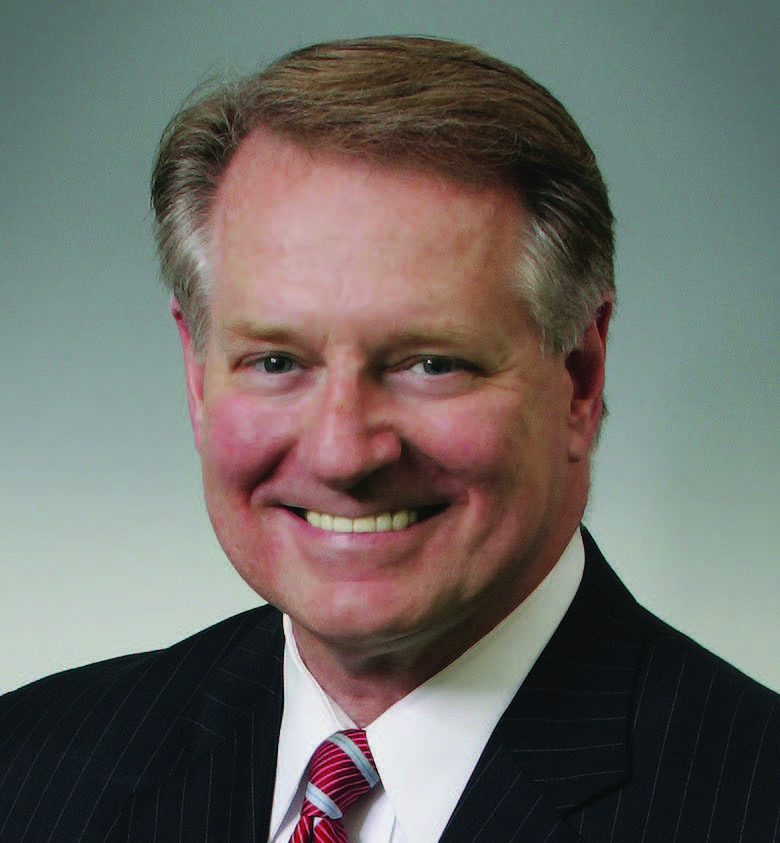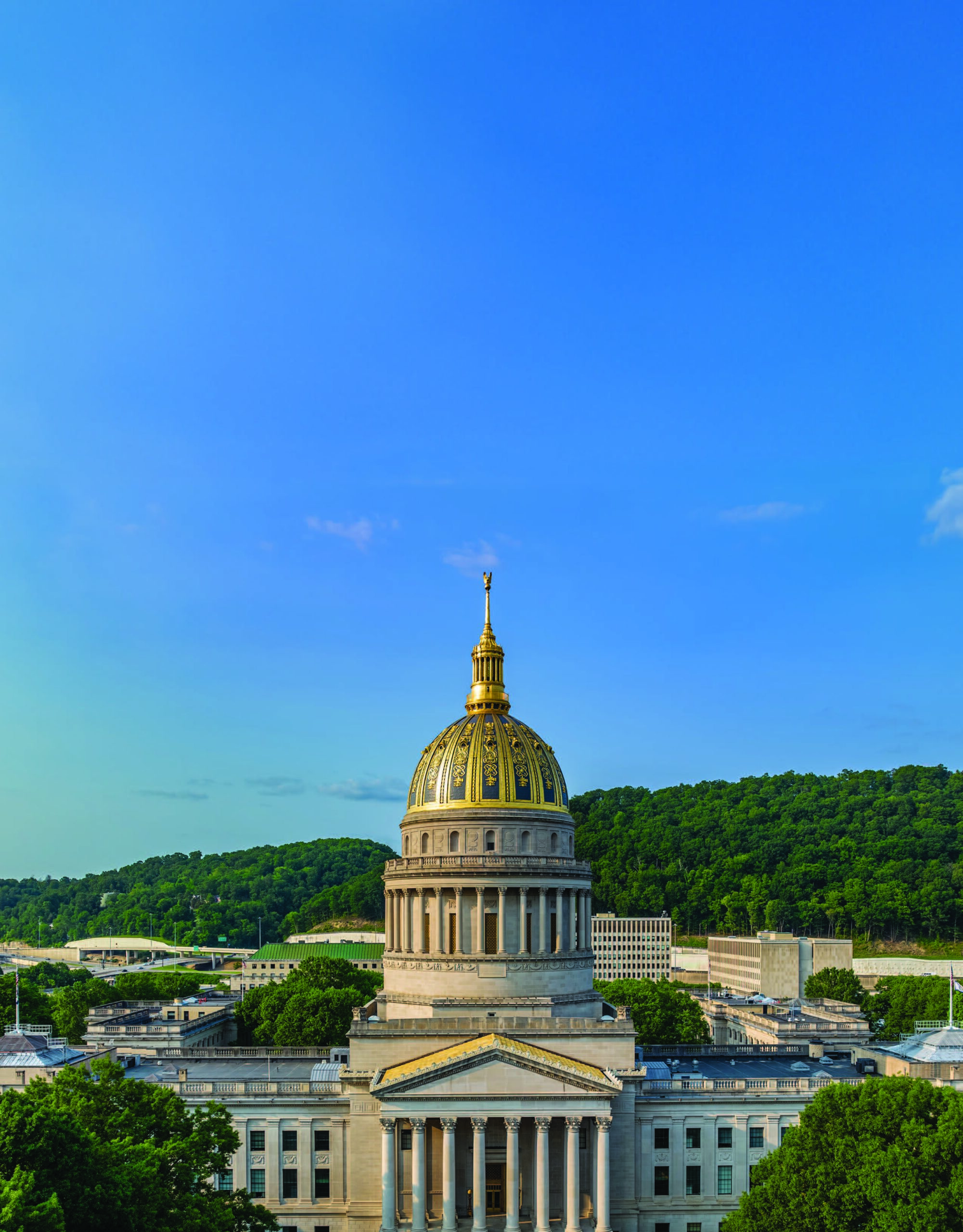West Virginia Attorney General Patrick Morrisey and Huntington Mayor Steve Williams will vie for the West Virginia governorship on Nov. 5, 2024.
This November, West Virginia Attorney General Patrick Morrisey will face Huntington Mayor Steve Williams in the 2024 gubernatorial election. Having served in their current roles for over a decade, both assert that they’ll utilize their experience to move West Virginia forward and create thriving communities.
“The West Virginia Chamber of Commerce is thankful to both candidates for sharing their vision for West Virginia with chamber members. The future of West Virginia has never looked so bright,” said Steve Roberts, president of the West Virginia Chamber of Commerce.
Candidate Profile: Attorney General Patrick Morrisey

Since being elected West Virginia’s attorney general in 2012, Patrick Morrisey has led an aggressive agenda to push back against federal overreach and fight for our Mountain State values. He led the landmark WV v. EPA case, protecting energy jobs and limiting federal regulatory power. Morrisey has also advocated for constitutional carry, defended state school choice laws and established West Virginia’s first Disability Fraud Unit.
Morrisey’s leadership and partnership with West Virginia’s counties and cities in battling the opioid crisis has brought in over $1 billion through settlements with drug companies, creating a comprehensive plan praised statewide. Raised with strong working-class values, Morrisey worked multiple jobs to put himself through Rutgers College and Rutgers School of Law. He has a diverse background in law and public service, including roles as partner at a national law firm, chairman of the Republican Attorneys General Association, chief counsel to the House Energy and Commerce Committee and even a stint as a professional tennis umpire.
Now the Republican nominee for governor, Morrisey aims to cut taxes, enhance education, boost economic growth and protect families from drugs and crime. Married to his wife Denise with one daughter, Julia, Morrisey has lived in Harpers Ferry since 2006.
Candidate Profile: Huntington Mayor Steve Williams

Born and raised in West Virginia, Steve Williams has built a successful career in banking and finance, helping individuals, small businesses and corporations achieve their goals. When he was elected mayor of Huntington in 2012, Williams inherited a city in sharp decline. Essential services were being cut, first responders faced layoffs and the city’s bond rating was downgraded as it struggled to pay its bills. As mayor, Williams took decisive action to overcome these challenges. In 2017, Huntington was selected as the $3 million grand prize winner of the America’s Best Communities competition from among 350 cities nationwide.
As Huntington’s only three-time mayor, Williams successfully worked with community leaders to leverage over $514.7 million in grants, corporate investments and philanthropic contributions to revitalize the city. Notably, he accomplished all of this without raising taxes. Williams’ leadership has transformed Huntington into a model of community-driven success, highlighting Williams’ ability to inspire collaboration and achieve tangible results.
Williams earned a B.A. from Marshall University, where he played for the Young Thundering Herd, and a Master of Public Administration from West Virginia University. In addition to mayor, Steve has served as Huntington’s director of economic development, as a member of the House of Delegates and as city manager. He is married to Mary Poindexter Williams and has two stepdaughters.
As the election nears, the West Virginia Chamber of Commerce posed the following questions to the two candidates to gauge their approach to governing the Mountain State.
Chamber: What is your vision for West Virginia over the next four years, and how do you plan to lead us toward that vision?
Morrisey: Over the next four years, I envision West Virginia as a beacon of economic freedom and prosperity. My plan is to reduce the size of government, cut taxes and eliminate unnecessary regulations that hinder growth. By empowering our citizens and businesses, we can foster a thriving free-market environment. I will lead with a commitment to these principles, ensuring that every West Virginian has the opportunity to succeed and contribute to our state’s bright future. Together, we can make West Virginia a place where innovation and entrepreneurship flourish, driving sustained economic growth and improving the quality of life for all.
Williams: I aim to change West Virginia’s trajectory, making it the most aggressive, innovative state in the nation. Instead of fearing failure, we should strive for excellence. By harnessing the creativity of business and civic leaders, we can create a new model of problem-solving. In Huntington, our mantra is “Make No Little Plans.” This approach has created jobs, revitalized downtown, cut crime, improved infrastructure and transformed our city. If Huntington can achieve this, so can West Virginia. Let’s aim for the top together and make our state a leader in innovation and progress.
Chamber: As governor, what strategies would you implement to improve West Virginia’s education system and enhance student outcomes, particularly in light of recent National Assessment of Education Progress rankings indicating areas for improvement?
Morrisey: To improve West Virginia’s education system, I will prioritize policies that give parents and local communities more control over educational decisions. Expanding charter schools and education savings accounts (ESAs) will provide families with more choices and foster competition that drives up quality. I will also work to reduce bureaucratic red tape, allowing teachers to focus on teaching. By aligning our education system with free-market principles, we can create a more dynamic and effective environment for learning, ensuring that all students have the opportunity to succeed and excel.
Williams: As governor, I will prioritize improving West Virginia’s education system by implementing strategies that address current challenges and elevate student outcomes. Recognizing that educators are being asked to do more with less, we must ensure sufficient funding and resources for our schools. The top-performing states in the National Assessment of Education Progress share key attributes: rigorous academic standards, adequate funding, favorable student-teacher ratios and a commitment to professional development. By adopting these proven practices, we can create a supportive environment for both teachers and students, ultimately boosting our national rankings and securing a brighter future for our children.
Chamber: How do you plan to address the current workforce shortage and poor labor participation rate in West Virginia?
Morrisey: To tackle the workforce shortage and low labor participation rate, I will implement policies that attract businesses and create jobs. Reducing taxes and regulations will make West Virginia more attractive to employers. I will also invest in vocational training and apprenticeship programs to equip our workforce with the skills needed in today’s economy. By fostering a business-friendly environment and empowering workers, we can boost employment, raise incomes and ensure that West Virginians are ready to meet the demands of a growing economy.
Williams: To tackle West Virginia’s workforce shortage and low labor participation rate, we must focus on three key areas: investing in worker retraining, enhancing our education system and implementing policies that attract people to our state. By investing in retraining programs, we can equip our existing workforce with the skills needed for emerging industries. Improving our education system will ensure that future generations are well-prepared for the job market. Additionally, we will pursue policies that highlight West Virginia’s quality of life and economic opportunities to attract new residents. Together, these strategies will create a robust, dynamic workforce driving our state’s prosperity.
Chamber: Over the past several years the West Virginia Legislature has passed a number of important reforms to improve the business climate in our state. These include Right to Work, education reform including charter schools and ESAs, and legal reforms. Do you support these Chamber-backed initiatives, and how will you work to improve West Virginia’s economy?
Morrisey: I fully support the Chamber-backed initiatives that have laid the foundation for economic improvement in West Virginia. Right to Work laws, education reform including charter schools and ESAs, and legal reforms are crucial for creating a business-friendly environment. As governor, I will build on these successes by continuing to cut taxes and regulations, promoting entrepreneurship and attracting new businesses. Together, we can strengthen our economy, create jobs and ensure that West Virginia is a place where businesses and families thrive.
Williams: I support initiatives that improve West Virginia’s business climate and economy like cutting taxes and investing in infrastructure. I’m not convinced that the Right to Work law improves West Virginia’s business climate, and I have reservations about initiatives that cut public education funding. As governor, I will focus on fostering a pro-business environment by enhancing workforce development, investing in infrastructure and supporting innovative entrepreneurship. Strengthening public education to meet the needs of a dynamic economy is crucial. By collaborating with the business community and prioritizing education, we can drive sustainable economic growth and create a thriving future for West Virginia.
Chamber: How would you reverse West Virginia’s population decline and attract more residents?
Morrisey: To reverse West Virginia’s population decline, we must create an environment that attracts and retains residents. We need to excel in key metrics such as low taxes, minimal regulation, licensing, workforce readiness and education policy. We should engage in a “backyard brawl” with neighboring states and become a destination where capital and people flow naturally. By cutting taxes and reducing regulations, we can make West Virginia more attractive for businesses and individuals. Improving our education system and workforce training programs will ensure our citizens are prepared for future jobs. Lastly, investing in health care and infrastructure will enhance our state’s desirability and ensure long-term residency. Together, we can build a prosperous and vibrant West Virginia that people are proud to call home.
Williams: As a candidate for governor, I am committed to revitalizing West Virginia by improving our infrastructure, particularly broadband, and expanding worker retraining programs. To attract new residents, we must highlight our state’s low cost of living, unparalleled natural beauty and abundant resources. Our proximity to East Coast population centers makes West Virginia an ideal place for both businesses and families. Through inclusive public policies and targeted marketing, we will demonstrate that West Virginia is a welcoming state, open to all, regardless of life’s disposition. Together, we can build a vibrant, thriving future for our Mountain State.
